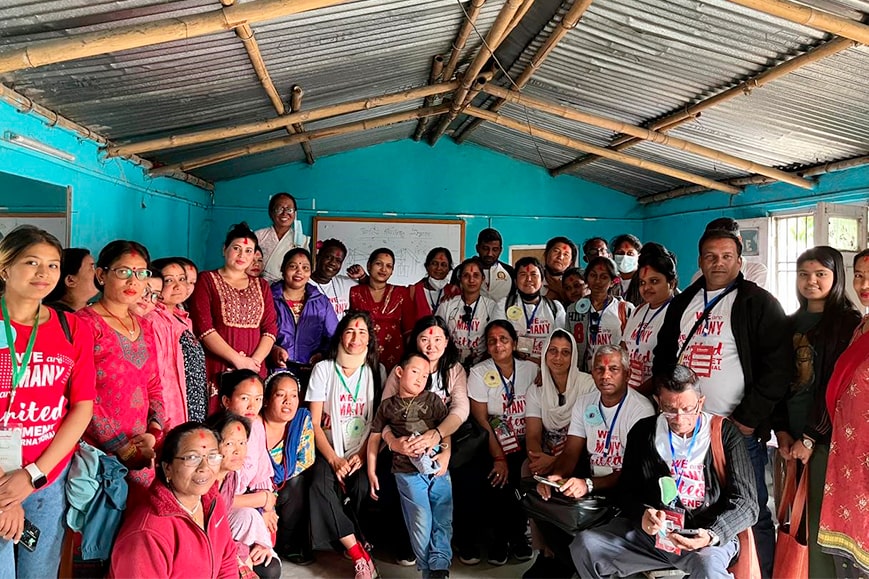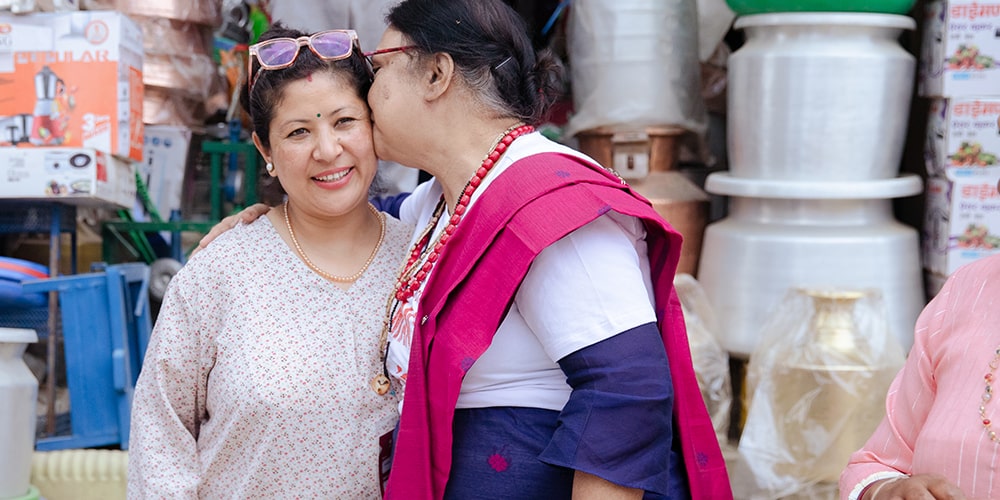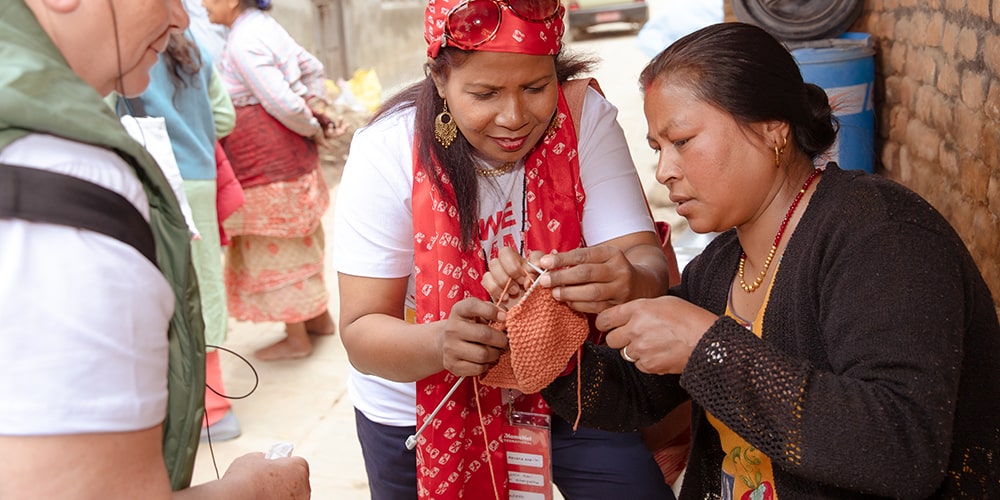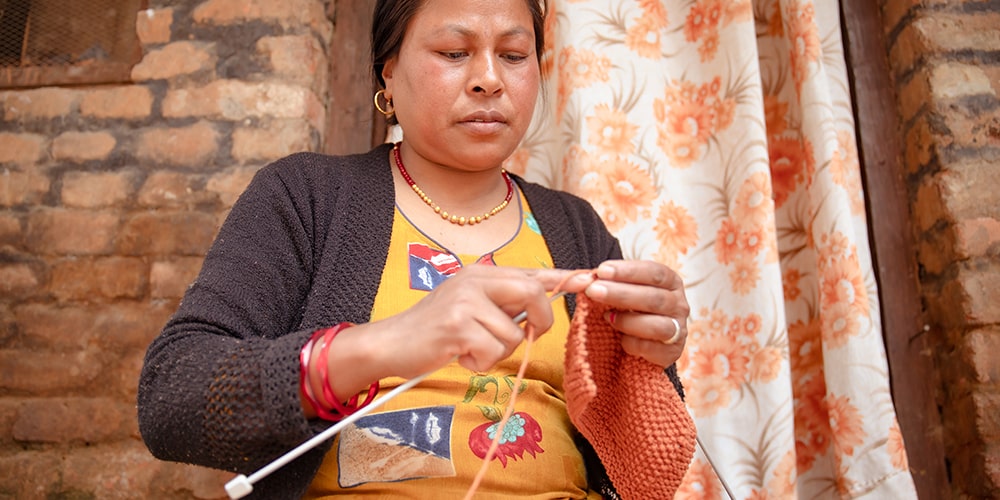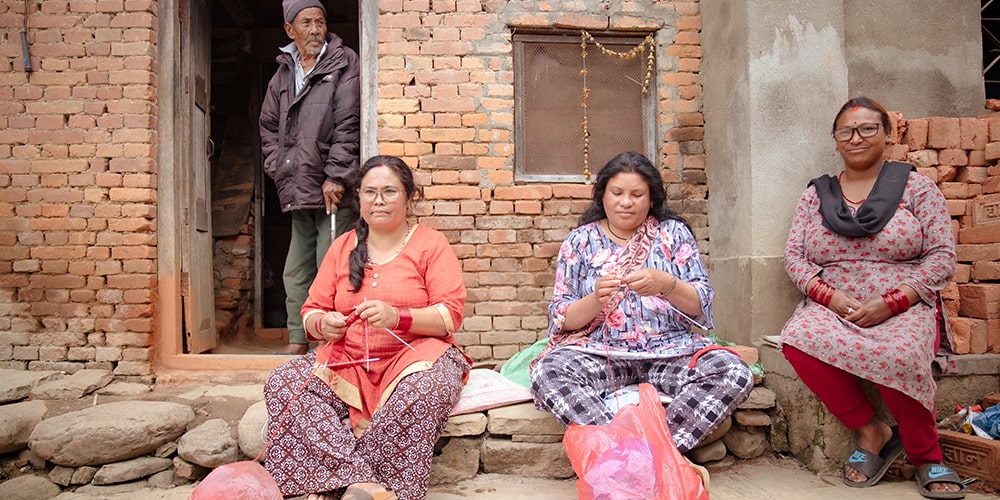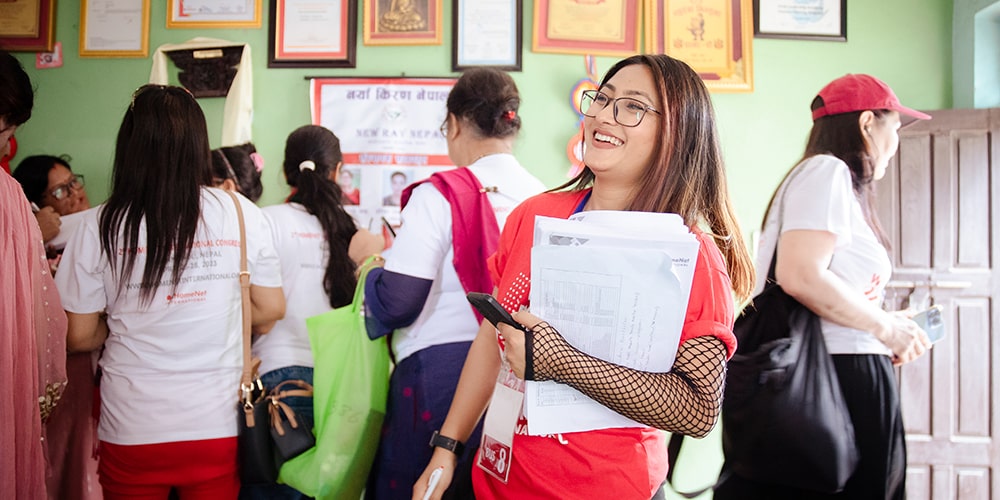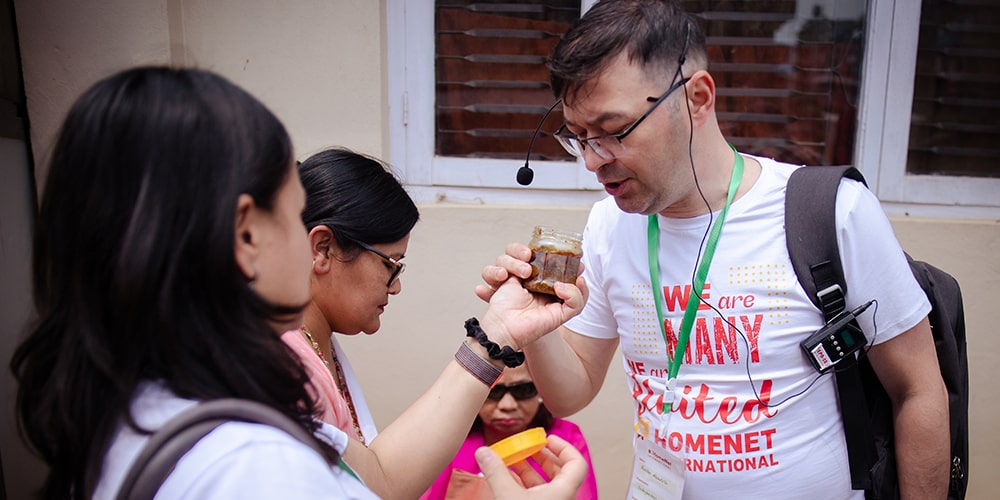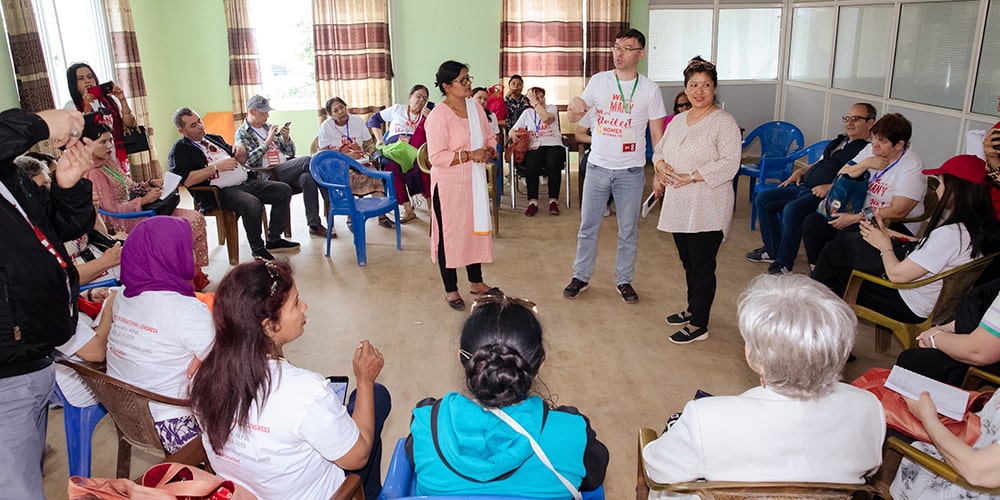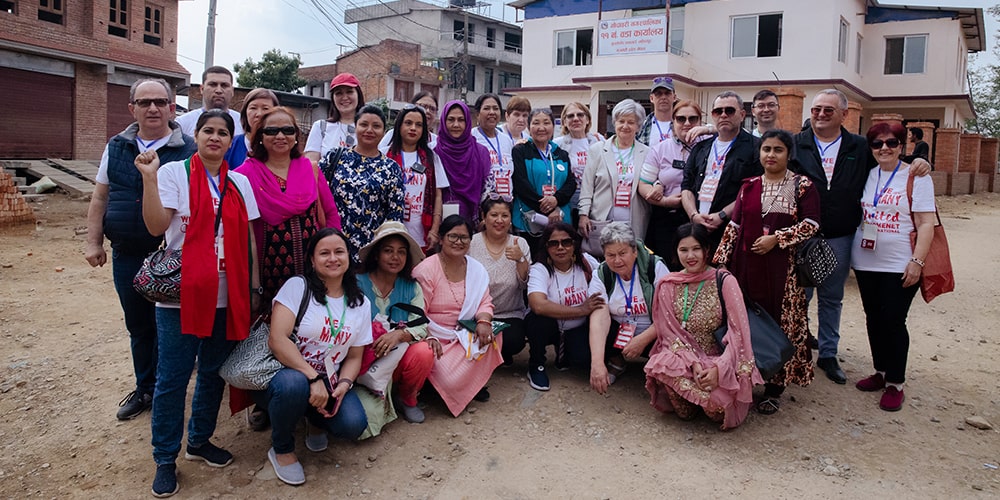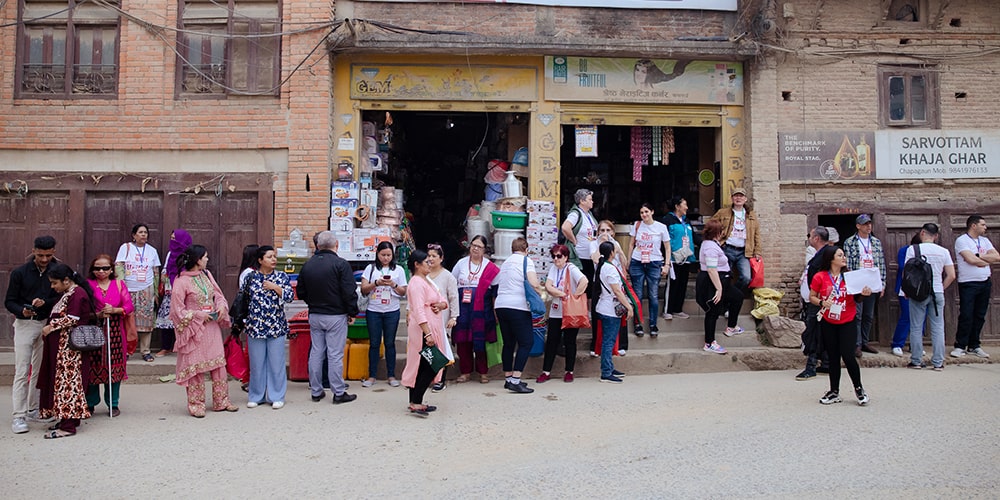Learning and exchanging: Congress participants visit six HBW organisations in the outskirts of Kathmandu
“What we have learned as a good practice is the empowerment of female home-based workers in the communities. The community organizes using cooperatives, with good management and governance. The community has benefited from a housing welfare relief fund for the people who have been affected by the earthquake which made way for a childcare center, kindergarten and clinic for female home-based workers. They bring children to daycare, thus, they can work efficiently to earn income for their families without the concern of taking care of their children when they work. Most importantly, they have collected a pool of money to help with bulk-buying for raw materials and the welfare of members of the group for sickness, maternity, and death.”
-Lamphan Nanthapanya, HomeNet Laos
“We had never stepped out of our homes, so meeting all of these sisters and brothers has made us feel very good. Yesterday, we visited the place where sisters of Nepal do home-based work. I am a HBW and do sewing and weaving. They minutely and patiently explained everything to us. When we go back to our homes, we will explain this work to our sisters in a better way and produce better finished work.”
- Sarvesh, SEWA Bharat
“One woman noted that she had participated in a training provided by the International Labour Organization (ILO) on entrepreneurship and the elimination of violence against women. Following the training, she started training other female home-based workers, and as a result, these women started to sell their products outside of the home, something they had never done before. In addition to providing space, the district council assists Sabah Nepal by paying the female trainers for the instruction they deliver.”
- Shaigul Omuralieva, Kyrgyzstan Public Union “Ak Bairak”
“We observed the women weaving dresses. They mentioned it takes them three days just to make one meter, sometimes they work from 5:00 am until 7:00 p.m. They work 12 hours. Also, they struggle with the heat and cold in their center, due to climate change. Some people may think these tasks are easy, but in reality, they are very challenging.”
- Asha Veegaha Badda, Sabha Sri Lanka
In the northern part of Kathmandu, delegates visited Gokarna and Mulpani. In Gokarna, they interacted with HBWs from the Gokarneshwor Home-Based Workers Skill Development Women’s Cooperative, which is an affiliate of HBWCSN. The cooperative consists of 725 female members engaged in various activities such as knitting, embroidery, beading, shoemaking, Dhaka weaving, carpet weaving, soap making, incense production, and more. The cooperative operates a community center that serves as a training center, production and collection hub, and space for other collective activities.
“We discussed the main organizational issues our fellow sisters are facing in the cooperative. All of us as home-based workers are dealing with similar issues. We saw their struggles, it was painful to see that some lack good working conditions and a proper space. As my fellow sisters said, the place is too small for the work they do. Also, they have been inhaling glue and they lack ventilation. Our fellow sisters suffer health problems, like back pain and eye problems. It is very important to see that from their side. Those are the working conditions of these fellow workers.”
- Jaqueline Serrano, Sewing and Garment Workers Cooperatives Federation Llc, Argentina
“This visit was an excellent experience for us. We learned a lot by sharing experiences and seeing things. We met the home-based workers there and spoke to them. We came to know that they are very good home-based workers, but their products are not getting access to the markets, it is restricted in the community only. We realized this was a challenge for them. They were making excellent products which deserved to have access to the markets.”
- Fouzia Bibi, HomeNet Pakistan


